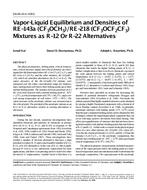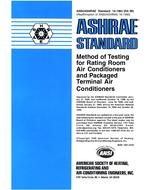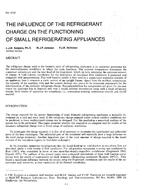A 10.5-hp turbine, operating on a Rankine thermodynamic cycle, uses R113 as the working fluid to drive the compressor of a 7.5-ton-capacity refrigeration system used for cooling a laboratory building. The energy to the refrigerant in the Rankine cycle is supplied by hot water at 10 bar (150 psia) and 172 deg C (340 deg F), which, in turn, collects solar energy from a field of line concentrating solar collectors. In order to maintain the operating condition, the water in the solar collector is further circulated through a “temperature control loop” (TCL) consisting of an auxiliary boiler, an insulated hot water storage tank, a liquid-to-liquid heat exchanger, a vaporiser, and a combination of computer-actuated solenoid valves. Discusses the analytical model developed related to heat transfer and pressure drop for each of the components other than the storage tank. Finally, a simulation program based on the present model is presented, which successfully predicts the thermal performance of the entire system.
KEYWORDS: heat flow, hydrodynamics, thermodynamic cycles, R113, refrigerants, compressors, Rankine engine heat pumps, solar collectors, solar energy, refrigeration, cooling, laboratories, buildings, Rankine cycle, heat exchangers, pressure drop, components, computer programs, computers, performance, calculating
Citation: ASHRAE Trans. 1992, vol.98, Part 1, Paper number 3593, 542-550, 6 figs., 3 tabs., refs.
Product Details
- Published:
- 1992
- File Size:
- 1 file , 930 KB
- Product Code(s):
- D-17863


